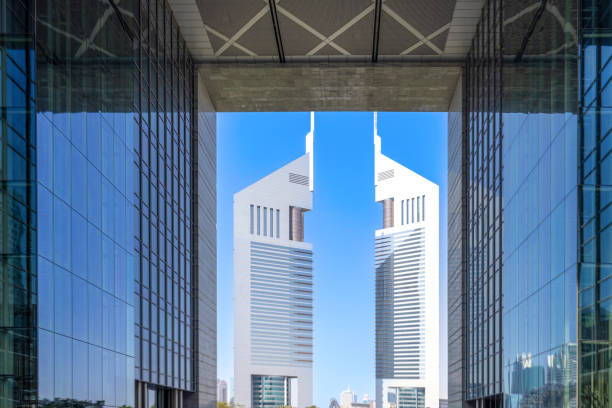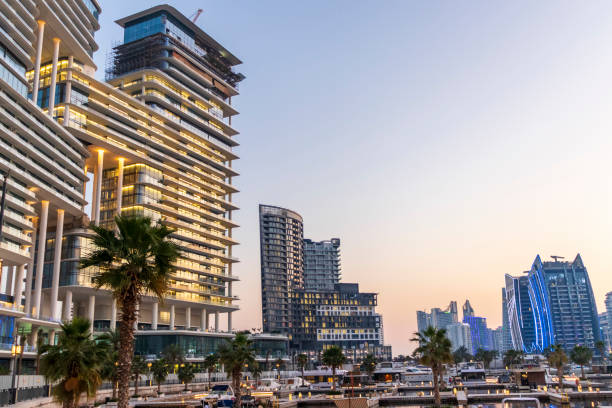In the vibrant city of Dubai, renewing a tenancy contract without the assistance of a property agent can be a straightforward process if you are familiar with the local laws and the required documentation. This practical approach not only potentially saves you money in agent fees but also gives you direct control over the negotiations and terms of your lease. The main topic of this article is to guide you through the process of renewing your tenancy contract in Dubai, ensuring you comply with legal requirements and complete the necessary steps efficiently and independently.
Understanding Dubai’s Rental Laws
The foundation for a hassle-free tenancy contract renewal in Dubai is a solid understanding of the city’s rental laws. The Dubai rental market is regulated by the Real Estate Regulatory Agency (RERA), which sets out clear guidelines for tenants and landlords. The tenancy agreement is legally binding, and it’s advisable to review the Real Estate Law, specifically Law No. 26 of 2007, which addresses the relationship between landlords and tenants in Dubai.
Period of Tenancy in Dubai
Dubai tenancy contracts are typically drafted for one year and can be renewed annually. A common question tenants have is, “”can landlord increase rent in Dubai after 1 year?”” The answer depends on the terms of the lease agreement and the RERA Rental Increase Calculator’s guidelines. Both parties should be aware of the notice period for renewal which, if not stipulated in the agreement, defaults to 90 days before the contract’s expiry as per Law No. 33 of 2008. This notice period allows enough time for both the tenant and landlord to agree on the new terms or express their intent not to renew.
Role of the Rental Dispute Settlement Centre (RDSC)
| Aspect | Description |
|---|---|
| Purpose | The RDSC aims to resolve disputes between landlords and tenants in a fair, efficient, and expeditious manner. |
| Scope of Services | Handles various rental disputes including contract violations, rent reviews, eviction processes, and maintenance issues. |
| Procedure | Disputes are submitted online or in-person, followed by a mediation process. If unresolved, the case is escalated to a judicial committee. |
| Time Frame | Aims to resolve disputes within a short period, often within 30 days from the date of filing the complaint. |
| Legal Authority | Empowered by local laws to make binding decisions, which can be enforced like court orders. |
| Accessibility | Provides services to both local and expatriate tenants and landlords, with facilities for online dispute submission and tracking. |

Preparing for Tenancy Contract Renewal
Well ahead of your contract’s expiration, it is crucial to review your current contract thoroughly. Check for any renewal clauses that specify terms regarding the timeline and conditions for renewal. If your contract has a rent increase cap or specific maintenance obligations, be sure to take note of these details.
Noting the Renewal Clauses
If your tenancy contract includes a renewal clause, it will often detail the process required to renew the contract, including notice periods and any conditions for rent adjustments. Familiarizing yourself with these terms will make the renewal process smoother and prevent any breaches of contract.
Identifying Any Necessary Amendments
Over the previous tenancy period, you may have encountered issues or needs that were not addressed in your original contract. Renewal time is an opportunity to voice these concerns and negotiate any changes to the contract terms, such as repairs, upgrades, or even changes to payment schedules. This might be a perfect opportunity for those looking for an “”apartment for short-term rent in Dubai”” to discuss shorter lease durations with their landlords.
Communication with Your Landlord
Proactive and open communication with your landlord is key to a successful renewal. To initiate the renewal discussion, inform your landlord about your intent to renew the contract well before the 90-day notice period, if applicable. This gives both parties ample time to review terms and reach an understanding.
Negotiating Rent and Terms
Rental rates in Dubai can fluctuate based on market conditions. Before negotiating, research the current market rate for similar properties in your area using the RERA Rental Increase Calculator. Present your findings to your landlord and negotiate the rent and terms based on market conditions, your payment history, and tenancy duration. Those interested in a “”brand new apartment for rent in Dubai”” should be prepared for different pricing compared to older units in the same area.
Coming to an Agreement
Once you and your landlord have negotiated the terms, it’s time to agree on the new tenancy conditions. Ensure that any agreed-upon changes are well-documented and understood by both parties to prevent future misunderstandings. This is also an opportunity for those who have been considering “”Dubai apartments for rent short-term”” to clarify the terms for similar arrangements with their landlords.
Documentation Needed for Renewal
To renew your tenancy contract, you need to prepare the required legal documents. The most critical document is the Ejari certificate, which is the official record of your tenancy contract with RERA. Other necessary documents typically include your passport copy, visa, Emirates ID, and the existing tenancy contract.
Required Legal Documents
The following are documents you typically need for renewal:
- Passport copy with visa page.
- Emirates ID copy.
- Current Ejari certificate.
- Most recent DEWA bill or connection receipt.
- Tenancy contract.
Ejari Registration
Ejari, which translates to “”my rent”” in Arabic, is a system that regulates the rental market in Dubai, ensuring both parties’ rights are preserved. New contracts and renewals must be registered with Ejari to become legally binding. Failure to do this can result in difficulties asserting your rights as a tenant.
This marks the midpoint of the article, where we have outlined the initial preparatory steps and documentation required for a tenant to successfully renew their tenancy contract in Dubai without the involvement of a real estate agent. The subsequent sections will continue to explore the step-by-step process in detail, including how to utilize online platforms for contract renewal and the importance of conducting a property inspection before finalizing the agreement.

Steps to Renew Your Tenancy Contract
As the renewal date of your tenancy contract approaches, it’s important to be organized and aware of the timeline for renewal to ensure a seamless process. Begin by drafting a new tenancy agreement that includes any new terms negotiated with your landlord. Review all the details meticulously to make sure that the contract reflects your mutual agreement accurately.
Timeline for Renewal
The timeline for renewal should be adhered to strictly to avoid any potential disputes or misunderstandings. Typically, you should begin the renewal process at least 90 days before your current contract expires, and here are the key steps in the timeline:
- Send a written notice of your intention to renew 90 days before the expiration.
- Negotiate new terms and reach an agreement with your landlord around 60 days before the contract expiration.
- Prepare all the necessary documents 30 days prior to the deadline.
Step-by-Step Process
Once you have agreed upon the details of your new contract and gathered all the necessary paperwork, follow the steps below for a smooth renewal:
- Draft the new contract and have both parties review it.
- Sign the new tenancy contract with your landlord.
- Register the new contract with Ejari to legalize it.
- Pay any applicable fees for updating your documentation.
Electronic Renewal Options
With the advancement of digital platforms, many steps involved in tenancy contract renewal can now be completed online in Dubai. Utilize the Dubai REST app or the Ejari online portal to register your contract and pay associated fees without the need to visit a service center, saving you valuable time and resources.
Inspecting the Property
Prior to finalizing the renewal of your tenancy contract, it’s crucial to conduct a thorough inspection of the property. This is to ensure that any existing maintenance issues are identified and addressed before entering into the new agreement period. Talk with your landlord about what maintenance will be covered and what falls under your responsibility.
Conducting a Thorough Inspection
Make a checklist of all areas of the property that require inspection—appliances, plumbing, electrical systems, walls, floors, and windows. If there are any disputes or differences regarding property condition, refer to the RDSC for guidelines on how to resolve these matters fairly.
Addressing Maintenance Issues
Any issues found during the inspection should be documented and discussed with the landlord. Determine who is responsible for each repair according to your agreement. Repairs should be completed before the start of the new tenancy period or as agreed upon in writing with the landlord.

Finalizing the Renewal
With the property inspected and all documents in order, it’s time to sign the new contract. Review the document thoroughly to ensure all the agreed-upon terms and conditions are correctly mentioned. Both parties should retain copies of the signed contract.
Signing the New Contract
Schedule a meeting with your landlord to sign the renewed contract. This is also a good time to exchange any keys, access devices, or security codes that may have changed since the original contract commenced.
Updating Ejari and Other Documents
Once the contract is signed, update your Ejari registration and ensure any other necessary documentation, such as utilities and service contracts, reflect the renewal. Consider documenting this process meticulously to avoid issues in the future.
Overall
Renewing your tenancy contract in Dubai without an agent is entirely feasible and can be efficient if you’re well-prepared and understand the laws and procedures. By following the steps outlined in this article, tenants can negotiate directly with landlords, save on agent fees, and maintain a good level of control over their living arrangements. Remember, understanding your rights and responsibilities as a tenant is pivotal in making the renewal process smooth and amicable.
FAQs
- How do I know if my landlord can increase my rent in Dubai when renewing my tenancy contract? Check with the RERA Rental Increase Calculator and review the terms of your current lease. Dubai rental laws provide guidance on when and by how much a landlord can raise rent, based on the Rent Index.
- What is Ejari and why do I need to register my tenancy contract with it? Ejari is a system that regulates the rental market in Dubai, ensuring legal protection for landlords and tenants. Registration of your tenancy contract with Ejari is mandatory for it to be legally recognized.
- Can I negotiate a short-term rental agreement when renewing my tenancy contract? Yes, you are free to negotiate any terms, including the duration of the lease, with your landlord. However, any changes to the standard one-year contract should be agreed upon by both parties and reflected in the contract.
- What if I find maintenance issues after I renew my tenancy contract? Address any maintenance issues with your landlord as soon as you discover them. The responsibilities for maintenance should be outlined in your tenancy contract—refer to these terms when discussing repairs with your landlord.
- Where can I go if there is a dispute during the tenancy contract renewal process? The Rental Dispute Settlement Centre (RDSC) is responsible for handling rental disputes in Dubai. It is best to attempt to resolve any issues amicably with your landlord first; if this is not possible, you can escalate the matter to the RDSC.



